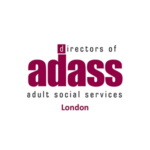Domiciliary care
We provide health support and guidance to London’s domiciliary care providers, to ensure that they can deliver the safest, best available care to those who need it in their own home.
Read more
How we support Londoners
As a programme, we aim to ensure that staff working in home-based settings receive the same support from health partners as staff working in the rest of the social care sector, particularly relating to:
- Embedding digital transformation for domiciliary care providers
- Flu and COVID-19 vaccination communications
- Infection prevention and control (IPC) training and support
How we achieve our outcomes
- improved vaccine uptake, risk assessment, infection control measures, recognising the deteriorating client, and staff wellbeing.
- Work with London Association of Directors of Adult Social Services (ADASS) and social care providers to ensure a joined-up approach focusing on demand and capacity and linkages to Personal Protective Equipment & staff testing.
- Working with stakeholders, identify and escalate challenges to national colleagues to identify support to address them, and contribute to national guidance documents.
- Work with other regional programmes to ensure that domiciliary care providers are included in work that may benefit the delivery of care in the home.
How we work
To date our work has predominantly focussed on supporting providers with issues relating to Covid-19, particularly vaccination for staff. We work closely with colleagues in London ADASS, the regional leadership voice for Adult Social Care.
Whilst there is no national mandate or funding for this work, the work is led through partnership work with regional NHS and ADASS representatives. We hope to expand this work in the near future.
Who we work with
Our resource packs are contributed to by clinicians, local authority, public health and integrated care service representatives, as well as other regional colleagues. Our key partnership in our work is with London ADASS.

